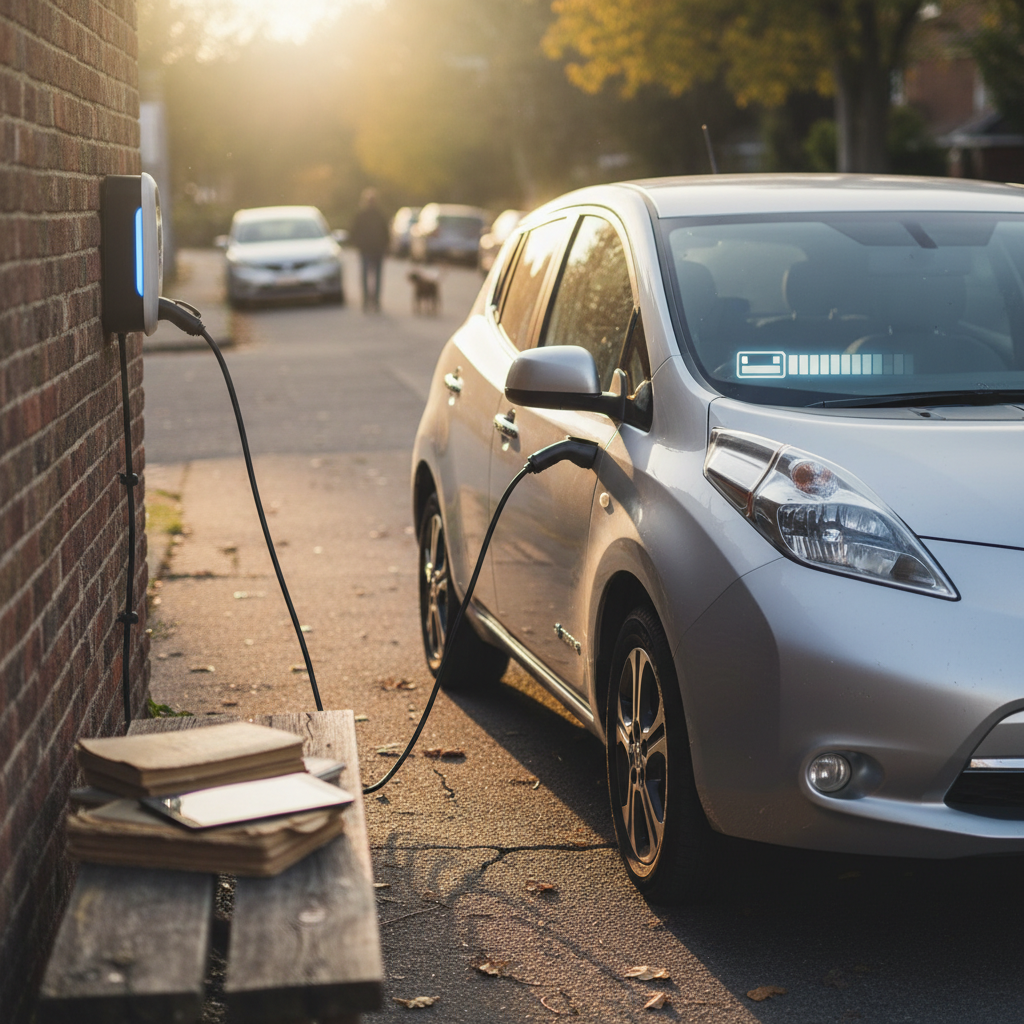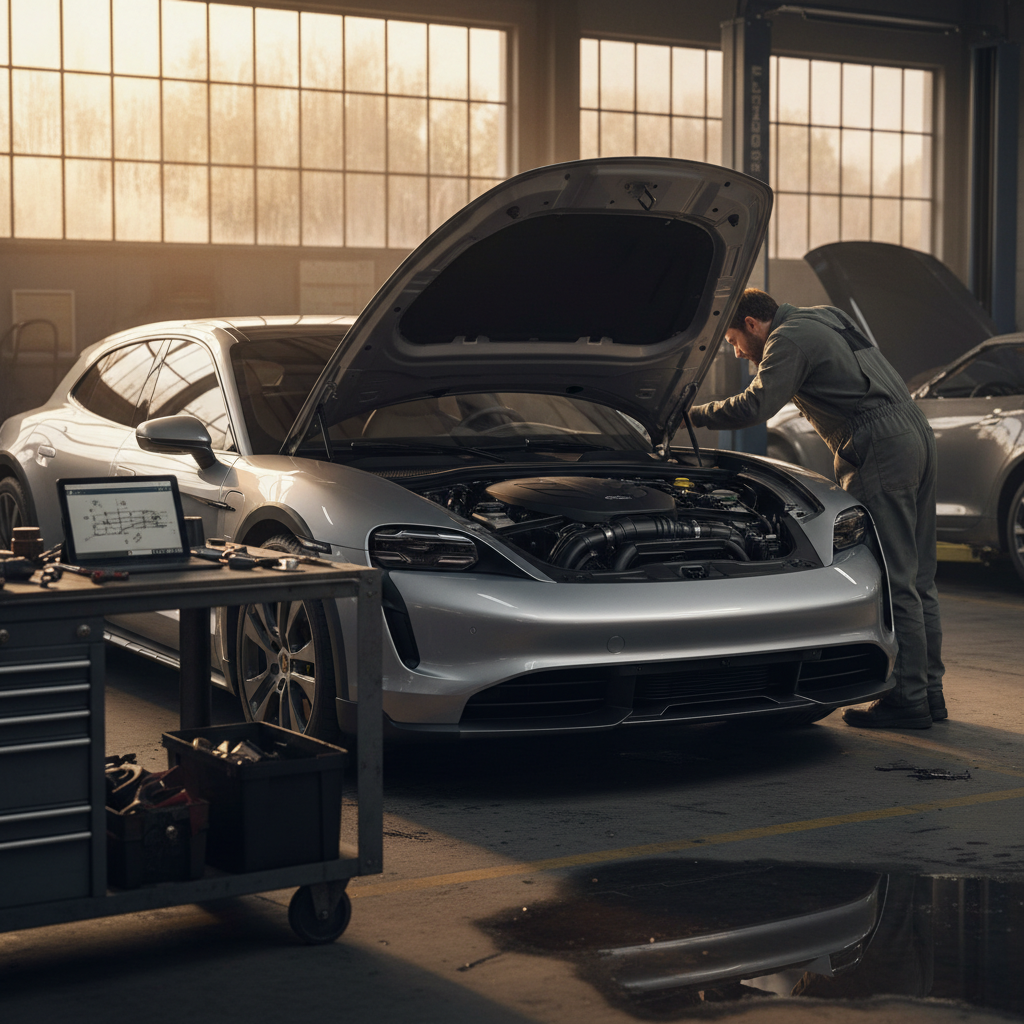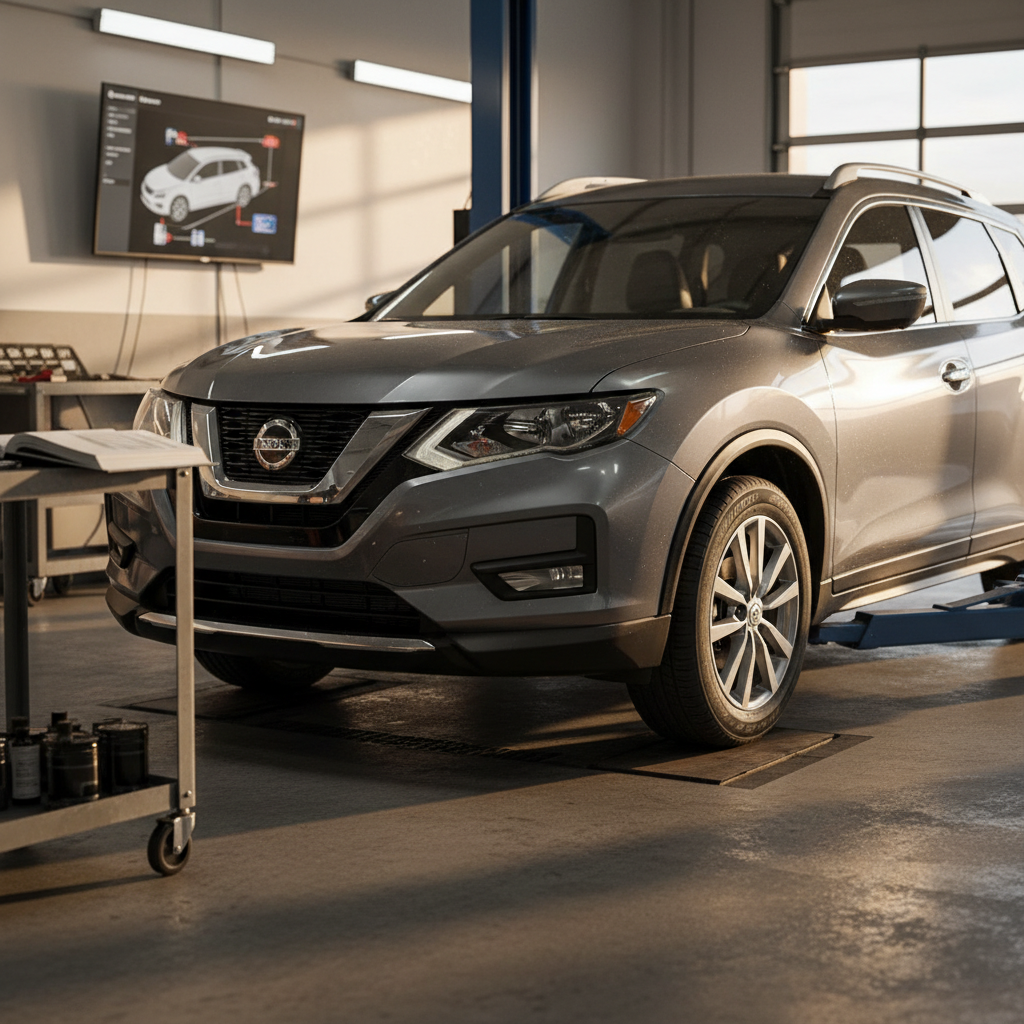When people talk about the nicest car interior, they often picture quilted leather and wood. In 2025, especially with electric vehicles, the conversation has shifted: the nicest interiors now mix quiet, lounge‑like comfort with smart tech, sustainable materials, and interfaces that don’t make you dig through three screens just to adjust the temperature.
Quick take
Why “nicest car interior” means more in an EV
In a gas car, the engine sets the tone: there’s always some vibration and noise. In an EV, the powertrain is nearly silent. That means you hear every squeak, rattle, fan whir, and tire roar. Automakers who take interiors seriously use that silence as a blank canvas, adding better insulation, double‑pane glass, and richer materials so the car feels like a high‑end lounge instead of a rolling echo chamber.
- Acoustic glass and insulation make EV cabins feel calmer than many gas luxury cars.
- Flat EV floors open up rear‑seat legroom and allow new seating layouts.
- Big batteries under the floor lower the center of gravity, so you don’t need huge bolsters to feel secure, seats can be softer and more sofa‑like.
Shop used, get more interior for your money
What actually makes a car interior “nice”?
Ask ten people what the nicest car interior is and you’ll get ten answers, some want a nightclub on wheels, others want a zen garden. Still, you can break “nice” into a few objective buckets that apply to almost everyone.
6 pillars of a truly nice car interior
Use these criteria to judge any cabin, new or used
Comfort & seating
Seat shape, padding, and adjustability matter more than stitching patterns. Look for:
- Power lumbar and thigh support
- Heated (and ideally ventilated) seats
- Rear‑seat recline and cushion depth
Noise & refinement
In a quiet EV, road and wind noise become the villains. The nicest cabins use:
- Acoustic glass
- Extra door and floor insulation
- Isolated subframes that keep bumps muted
Materials & details
Soft‑touch plastics are baseline. A truly nice interior adds:
- Real metal or high‑grade trim
- Quality fabrics, leather or vegan alternatives
- Consistent panel fit and stitching
Screens & controls
Tech should help, not distract. Look for:
- Clear graphics and quick responses
- Logical menus and shortcuts
- Physical controls for key functions
Lighting & ambiance
Modern ambient lighting can make even a simple cabin feel special:
- Color‑adjustable LED strips
- Soft, indirect lighting, not glare
- Profiles that remember your setup
Sustainability & feel
Recycled, plant‑based, and low‑VOC materials are increasingly common, and many feel genuinely premium if executed well.
Don’t be fooled by one fancy trim piece
Top EVs with the nicest car interiors in 2025
This isn’t an exhaustive list, and tastes differ, but if you’re hunting for the nicest car interior in an EV today, new or used, these models belong on your test‑drive list. Many now appear in the used market, where they deliver flagship‑level cabins at much friendlier prices.
Mercedes-Benz EQS (and EQS SUV): the digital lounge with Hyperscreen

If your idea of the nicest interior is a futuristic lounge, the Mercedes EQS is a benchmark. The available MBUX Hyperscreen stretches pillar to pillar with three seamlessly integrated OLED displays under one sheet of glass, backed by powerful processors and haptic feedback. Underneath the spectacle, Mercedes layers in soft Nappa leather, real metal switchgear, and subtle ambient lighting that can wash the cabin in your preferred color.
- Superb seat comfort front and rear, with available massage and heating/ventilation.
- Extremely quiet cabin thanks to acoustic glass and extensive insulation.
- Passenger‑side screen that lets your co‑pilot handle navigation or media without distracting you.
Used EQS sweet spot
Lucid Air: glass canopy and California living room vibe
The Lucid Air combines tech and warmth in a way few rivals match. The sweeping glass canopy and thin roof pillars flood the cabin with light, while wool‑blend fabrics, open‑pore wood, and high‑quality leather (or leather‑alternative) give the interior the feel of a high‑end west‑coast living room. The screens float in your field of view instead of dominating it, and the back seat in higher trims offers true cross‑country comfort.
- Excellent outward visibility and airy feel, especially with the glass roof.
- Thoughtful material choices, including sustainable fabrics that don’t feel like a sacrifice.
- Rear seating in some trims rivals traditional flagship sedans for legroom and recline.
Porsche Taycan & upcoming electric Cayenne: sport plus screen theater
If you want a cabin that feels like a cockpit, Porsche is tough to beat. The Taycan interior wraps around the driver with a curved instrument cluster, a central touchscreen, and an optional passenger display. Porsche keeps crucial functions on physical buttons or well‑placed controls so you’re not lost in menus at 70 mph. The new electric Cayenne pushes this theme even further, previewing a huge curved OLED "Flow Display" that bends towards the center console for a dramatic, tech‑forward look while retaining real knobs and switches for the basics.
- Best‑in‑class driving position and steering wheel feel; everything falls to hand.
- High‑quality materials that feel built for decades of use, not just a three‑year lease.
- Balanced blend of modern screens and old‑school tactile controls.
Tesla Model 3 Highland: minimalist interior finally done right
Tesla has always championed minimalism, but earlier Model 3 cabins felt sparse and could be noisy. The updated Model 3 Highland finally brings the interior up to the level many owners wanted. You get softer materials on touch points, new fabric‑trimmed dash and doors, a much quieter cabin with acoustic glass on all windows, and an upgraded 17‑speaker sound system plus a rear touchscreen for passengers.
- Super‑clean design with one main center screen and hidden air vents.
- Heated and ventilated front seats with improved cushioning and support.
- Wraparound ambient lighting that makes nighttime driving feel far more premium than the price suggests.
One controversial detail: stalk‑less controls
Polestar 2 and 3: Scandinavian calm on wheels
Polestar’s interiors are a master class in doing more with less. The Polestar 2 and 3 use clean lines, open‑pore wood or modern metal trim, and restrained ambient lighting to create a calm, Scandinavian feel. Google‑built infotainment means the screen layout is intuitive if you already live in Google Maps and Assistant, and Polestar’s vegan material options are some of the best in the business.
- Simple, airy design that doesn’t feel cold or cheap.
- Excellent driving position and supportive seats for long days behind the wheel.
- Easy‑to‑use infotainment with natural‑language voice commands.
Other notable EV interiors to put on your radar
- BMW iX: Bold design, ultra‑comfortable seats, crystal‑style controls, and a truly quiet cabin.
- Genesis Electrified GV70 / GV60: Warm color palettes, interesting textures, and excellent perceived quality for the money.
- Hyundai Ioniq 6: A more affordable EV with a sleek, lounge‑like cabin and clever ambient lighting effects.
Nicest car interior on a budget: value-focused EV picks
You don’t need an EQS or a Taycan to get a genuinely nice interior. If your budget is closer to mainstream pricing, these models punch well above their weight, especially as used purchases.
Affordable EVs with surprisingly nice interiors
Great cabins without flagship price tags
Hyundai Ioniq 5
Retro‑futuristic design, sliding center console, and lots of space from the flat floor. Materials won’t fool a Bentley owner, but they’re pleasant, and the layout is friendly.
Kia EV6
Sportier driving position, well‑sculpted seats, and a clean horizontal dash. Ambient lighting and good ergonomics make daily driving feel special.
Tesla Model Y (recent builds)
Same minimalist philosophy as the Model 3 with lots of usable storage and a great glass roof. Later cars benefit from incremental materials and noise improvements.
Where used EVs shine
How to choose your ideal EV interior feel
“Nicest” is personal. Some drivers feel most relaxed in a soft, warm cabin with fabric and wood; others want glass, metal, and massive screens. Instead of chasing someone else’s top‑10 list, decide which personality fits you, and shop accordingly.
1. The high-tech lounge
You love ambient lighting, big screens, and voice commands. You’re willing to trade a few buttons for a clean look and powerful software.
- Look at: Mercedes EQS, Porsche Taycan/Cayenne EV, Tesla Model 3/Model Y, BMW iX.
- Prioritize: Screen brightness, software speed, and physical controls for climate and volume.
2. The calm living room
You’d rather feel like you’re in a boutique hotel than on a spaceship. You value warm textures, quiet operation, and simple controls.
- Look at: Lucid Air, Polestar 2/3, Genesis GV60/GV70, Hyundai Ioniq 6.
- Prioritize: Seat comfort, cabin noise, and material quality where your arm and knee rest.
Match interior to your driving reality
How to “test-sit” a car interior like a pro
Designers can make almost any interior look great in photos. The real test is how that space feels once you’re inside. Here’s how to evaluate a cabin the way seasoned reviewers do.
7-step interior test-sit
1. Start with the seat base
Adjust the seat low and high. Does the cushion support your thighs, or does it feel like you’re perched on a bar stool? Any pressure points after a few minutes?
2. Check lumbar and recline
Move the lumbar support through its full range. In a genuinely nice interior, the seat supports your natural spine curve, not just your lower back.
3. Look beyond eye level
Run your hand along the lower dashboard, console, and door pockets. Cheap, hard plastics are more noticeable down here than a pretty wood strip up top.
4. Evaluate noise at speed
On a test drive, pay attention to road and wind noise at 50–70 mph. In a quiet EV, noisy tires or mirrors can quickly ruin the luxury vibe.
5. Try the controls blind
With your eyes on the road, change temperature, fan speed, and audio volume. If you constantly have to look down at a screen, the interface still needs work.
6. Sit in every seat
The nicest interiors don’t punish rear passengers. Check knee room, foot room under the front seats, headroom, and whether the rear backrest angle feels natural.
7. Test storage and daily use
Where will your phone, sunglasses, coffee, and bag actually go? A cabin can look high‑end but feel annoying if storage is an afterthought.

Used EVs: how to judge an interior from your couch
Shopping used often means you can’t sit in every car before you shortlist it. That doesn’t mean you have to guess. With the right photos, and the right data, you can get a surprisingly accurate sense of which EVs have the nicest interiors for you.
Evaluating a used EV interior online
What to look for in photos and listings
Look for close-ups
Good listings show seat bolsters, steering‑wheel stitching, door sills, and center console. Wear here tells you how the car was used and cared for.
Check for stains & gloss
Shiny patches on steering wheels and seats usually mean heavy use. Water marks or stains on headliners and door panels are red flags.
Pair cabin with battery health
The nicest interior isn’t much good if the battery is tired. A Recharged Score report pairs verified battery diagnostics with pricing and photos so you’re not choosing comfort at the expense of long‑term usability.
Why dealers’ “premium interior” claims vary so much
EV interior stats that actually matter
Spec sheets won’t tell you everything about the nicest car interior, but a few numbers can help you separate genuinely comfortable cabins from ones that just photograph well.
Key interior numbers to watch
Don’t chase numbers alone
FAQ: Nicest car interior & EV shopping questions
Frequently asked questions about the nicest car interiors
Bringing it all together
The search for the nicest car interior isn’t about chasing the latest screen or the shiniest trim. It’s about how you feel after an hour behind the wheel: relaxed, supported, and not fighting the car to do simple things. EVs have reset the bar here, bringing near‑silence, clever packaging, and new kinds of materials into price brackets that used to mean basic cloth and hard plastic.
Start by deciding whether you want a high‑tech lounge or a calm living room, then use the pillars we’ve covered, comfort, quiet, materials, controls, lighting, and sustainability, to compare cabins. Shortlist a few candidates, sit in them the way you actually drive, and don’t be shy about walking away from a car that looks great but doesn’t feel right.
If you’re open to buying used, platforms like Recharged let you step into EVs with truly exceptional interiors, often models that were out of reach when new, while giving you confidence in the most expensive component of the car: its battery. Get the cabin that makes you look forward to every drive, without guessing about what’s happening underneath the floor.



